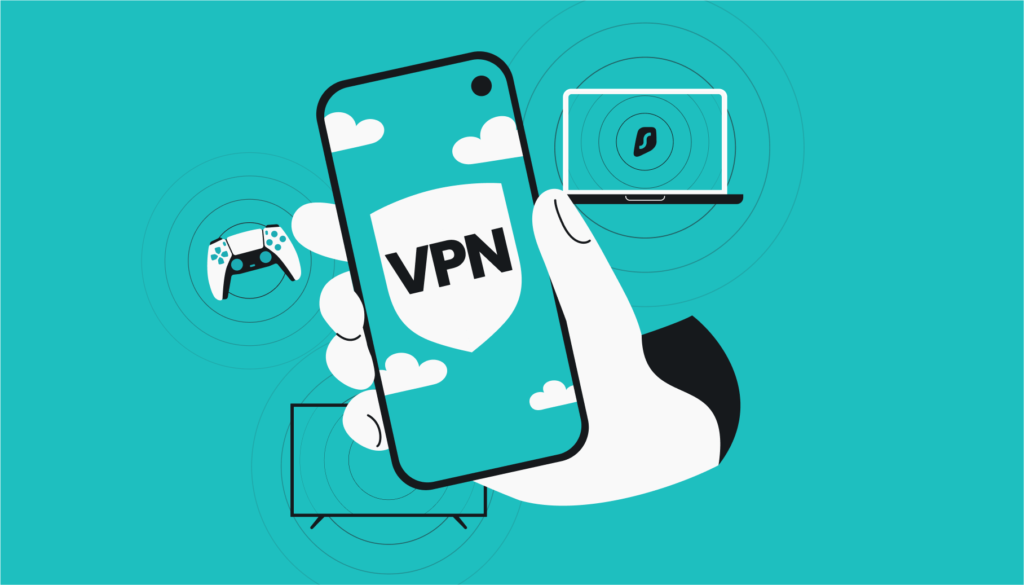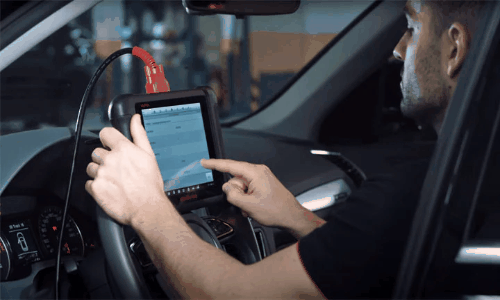Adverts
Surfing the internet can be compared to navigating a digital jungle full of invisible threats. In an increasingly connected world, where our personal information and sensitive data are constantly at risk, protecting our online privacy becomes a non-negotiable priority.
This is where VPN technology, or virtual private networks, comes into play as an essential tool to ensure safe and anonymous browsing.
Adverts
VPNs create an encrypted tunnel for data traffic, allowing users to browse the web without being monitored by unwanted third parties.
This feature is vital to protect against hackers, corporate behavioral tracking, and even government surveillance.
Adverts
But how exactly does this technology work and what are the real benefits for the average user?
This article takes a deep dive into how VPNs work, explaining the technical concepts behind this digital protection in an accessible way.
Additionally, we'll cover the various situations in which using a VPN can be especially beneficial, such as when using public Wi-Fi networks or accessing geographically restricted content.
But protecting your privacy goes beyond simply hiding your IP address.
Discover how VPNs can also improve your online experience, ensuring that you access content quickly and efficiently, without sacrificing security.
The transformation of the digital world requires us to always be one step ahead of threats, and this is an essential step.

Get ready to explore the benefits of VPNs and understand why they are a smart choice for anyone concerned about their online security.
In this space, we reveal the secrets to browsing with confidence, knowing that your privacy is protected in an increasingly complex and unpredictable digital environment. 🌐🔒
https://www.kaspersky.com.br/resource-center/definitions/what-is-a-vpn
Understanding What is a VPN
Have you ever heard of a VPN? It sounds complicated, but it’s actually a simple and powerful tool for protecting your online privacy. VPN stands for “Virtual Private Network.” Basically, a VPN creates a secure tunnel between your device and the internet, encrypting your data and hiding your IP address. This means that your online activities are protected from prying eyes, whether from hackers, your internet service provider, or even government agencies.
Imagine the internet is a busy highway and your data is cars traveling along it. Without a VPN, anyone can see which cars are passing by, where they’re coming from, and where they’re going. With a VPN, it’s like your data is traveling in an underground tunnel, invisible to the outside world. 🚀
Why You Should Use a VPN
Now that you know what a VPN is, you might be wondering, “Why should I use one?” Well, there are several reasons! One of the main ones is to protect your privacy. Using a VPN keeps your personal information and browsing habits away from prying eyes. This is especially important on public Wi-Fi networks, like those in cafes and airports, which are notoriously insecure.
Additionally, a VPN can help you access content that is blocked in your region. You know that streaming service that is not available in Brazil? With a VPN, you can connect to a server in another country and unblock content as if you were there. 🌎
Another advantage is the security of financial transactions. By using a VPN, you can shop and bank online with peace of mind, knowing that your data is encrypted and secure.
How a VPN Works
The magic of VPNs happens through protocols and servers. When you connect to a VPN, your device establishes a secure connection with a VPN server. That server then communicates with the internet on your behalf, masking your real IP address and assigning you a temporary IP. This helps hide your geographic location and ensures that your online activities remain anonymous.
The data transmitted between your device and the VPN server is encrypted, which means that even if someone manages to intercept this communication, they won't be able to understand the information. 🔐
There are several VPN protocols, such as OpenVPN, L2TP/IPsec, and IKEv2, each with their own advantages. OpenVPN, for example, is one of the most popular due to its robust security and flexibility.
Choosing the Right VPN for You
With so many options available, choosing the right VPN can be a daunting task. Here are some tips to help you make your choice:
- Security: Make sure the VPN uses strong encryption and reliable protocols.
- Speed: Some VPNs can slow down your connection. Opt for those that offer fast servers.
- Registration Policy: Choose VPNs that don’t log your online activities. This ensures greater privacy.
- Compatibility: Make sure the VPN is compatible with all your devices and operating systems.
- Ease of use: A good VPN should be easy to install and use, even for non-tech savvy people.
Challenges and Limitations of VPNs
Despite the many advantages, it’s important to be aware of some limitations of VPNs. Firstly, not all VPNs are created equal. Some offer lower levels of security, or have questionable privacy policies. That’s why it’s crucial to do your research before choosing one.
Another thing to keep in mind is that a VPN isn’t a silver bullet for all your online security problems. It can protect your connection, but it doesn’t guarantee protection against malware, for example. Therefore, it’s always a good idea to use a VPN in conjunction with other security practices, such as keeping your antivirus software up to date and avoiding clicking on suspicious links.
Additionally, some platforms may block the use of VPNs. Streaming services, for example, are constantly updating their technologies to detect and block VPN access. 🎬
Free vs Paid VPNs
When it comes to VPNs, you’ll find both free and paid options. Free VPNs can be tempting, but it’s important to be careful. They often have limitations, such as limited data, fewer servers, and slower speeds. Additionally, some may even sell your data to third parties to monetize their service. 😬
On the other hand, paid VPNs usually offer better security, more server options, and faster speeds. They also tend to have more transparent and trustworthy privacy policies. If you’re serious about your online privacy, it’s worth considering investing in a paid VPN.
To sum up, a VPN is a powerful tool for protecting your privacy and security online. By choosing the right one for your needs, you can browse the internet with more freedom and peace of mind, knowing that your information is safe. 🌐
Conclusion
In conclusion, by choosing to use a VPN, you are taking a significant step towards protecting your online privacy. VPNs create a secure tunnel for your data, ensuring that your personal information stays out of the hands of cybercriminals and snoopers. Furthermore, by masking your IP address, they provide an additional layer of anonymity, allowing you to browse the web without being tracked. For example, by connecting to servers in different countries, you can access geo-restricted content and enjoy a more open and free browsing experience. 🌐
Another crucial benefit is protection on public Wi-Fi networks. Using a VPN allows you to connect to these networks with confidence, knowing that your data is encrypted and protected from malicious interception. While VPNs are not a one-size-fits-all solution to online threats, implementing them is a vital component of a comprehensive digital security strategy.
In short, by integrating a VPN into your daily internet practices, you not only ensure your privacy, but also enhance your digital freedom. So don’t leave your online security to chance. Browse with peace of mind and protection, ensuring that your personal information remains exactly as it should be: private. 🔒




